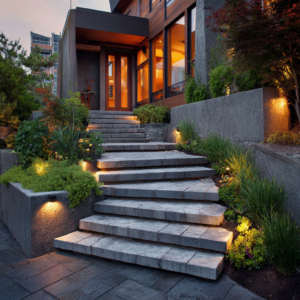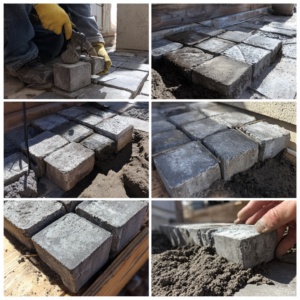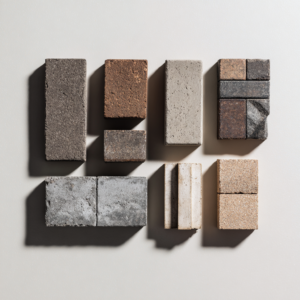If anybody has ever told you choosing the right paver sealer is easy, they’ve probably never given it enough thought. There’s just too much to consider! As if it wasn’t hard enough having to pick between water-based vs solvent-based, natural-look vs wet-look, you will still have to deal with all brands promising you their product is the best. But what are the best wet-look sealers for pavers?
If you’re stuck in the middle of this fight for your money, we hope to be able to throw you some light, helping you choose the best options by using the only thing we can offer. Our 20+ years of experience sealing pavers in Florida.
Jump to:
Wet-look sealer for pavers: what makes for a great product?
Before we start talking about your 5 best options of wet-look sealers for pavers, it’s important to level the foundation, making sure we all have our expectations in the right places.
All firm-forming sealers add a protective layer to your pavers. This layer is supposed to prevent staining and discoloration, minimize wear and tear, make cleaning easier, and handle weed growth.
A great wet-look paver sealer is able to do all that for a long time. Optimally, it’s also easy to apply and not harmful to the environment. We’re guilty of favoring water-based sealers because of that, but can you really blame us for preferring the greener option that’s also easier on your pockets?
5 wet-look sealers for pavers you can rely on
No contractor can claim to have worked and checked the results offered by all paver sealer brands. First, partially because there are hundreds of them, and we’re pretty sure there are a lot of great products out there we still haven’t tested. Second, the expected results can only be confirmed over the years.
All of this just goes to say that if you’re dead set on finding out the absolute winner of the wet-look sealer for pavers, this article isn’t for you. And we’re pretty sure that you will not find an article that will give you that, especially because all the high-ranking comparisons in Google right now are marking money when you buy the products they are proposing as overall best.
The products on the top of our list, are those we know and trust, for we have used them hundreds of times in the homes of clients we’re always revisiting over the years. Here are 5 wet-look Sealers for pavers we rely on and you can too.
Super Wet-Look® Paver Sealer From Seal ‘n Lock
The first two entrances on this list are definitely those we use the most. The Super Wet-Look® Paver Sealer from Seal n Lock is a high-quality, two-part water-based pure urethane sealer that penetrates the pavers to provide a longer-lasting protective barrier with superior joint stabilization (no need for polymeric sand) and super ‘wet’ look.
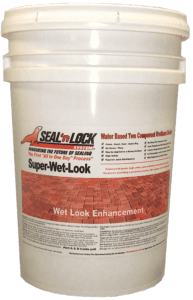
If you’re looking for the green wet-look choice, look no further. Do you want something even wetter without resourcing to solvent-based sealers? Keep reading.
Ultra Wet-Look® Paver Sealer From Seal ‘n Lock
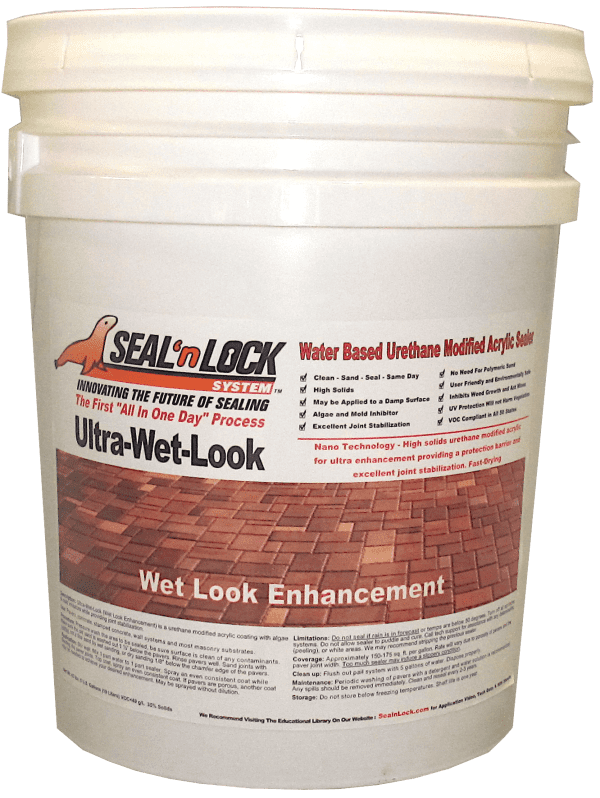
Ultra Wet is a Seal ‘n Lock option for those of you who take a wet look seriously while at the same time wanting to stick to water-based sealers, which are more environmentally friendly.
It’s similar to Super Wet; however, it employs nanotech in really smart ways (let’s not get into chemistry, right?) to deliver a wetter look. Did we mention Seal ‘n Lock products are made in Florida?
Armor AR350 Solvent-Based Wet Paver Sealer
If for some reason we can’t really figure out you want to go with solvent-based sealers, this is our go-to choice. Foundation Armor is a serious American business that offers strong options when it comes to solvent-based paver sealers.
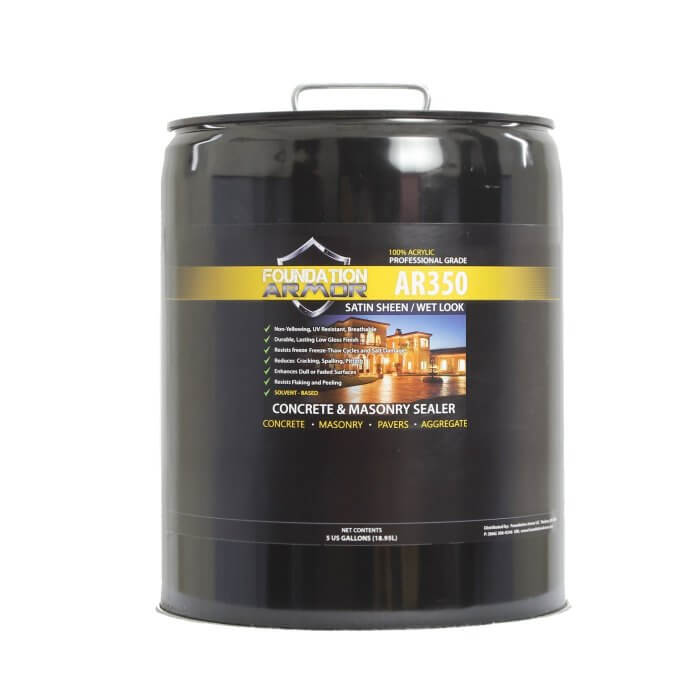
A highlight of AR350 is the fact that it is self-priming and can be applied to unsealed concrete and paver surfaces, as well as surfaces previously sealed with a solvent-based acrylic sealer
DOMINATOR SG+ High Gloss Paver Sealer
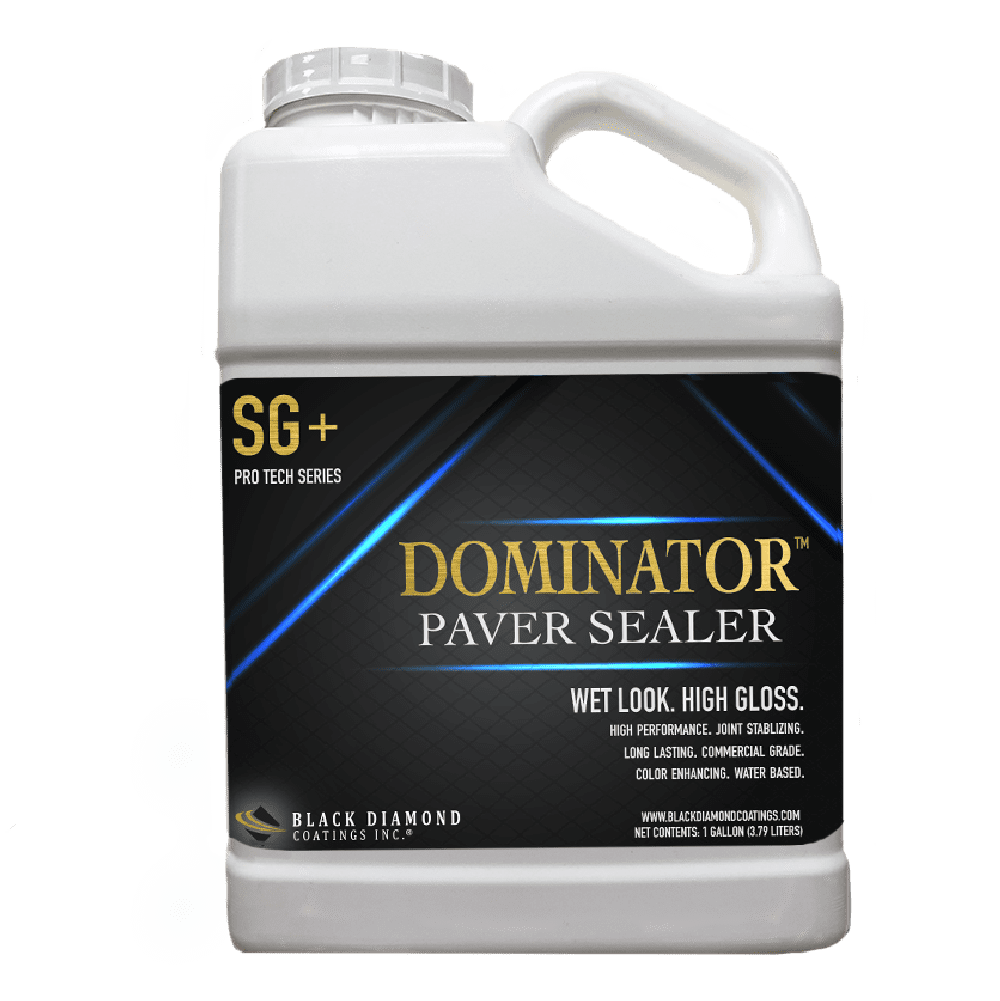
If you can’t find Seal ‘n Lock products in your state, you can count on this amazing water-based sealer from Black Diamond. Besides also giving you that wet look you’re trying to achieve, the DOMINATOR SG+ is also very promising when it comes to the coverage area and ease of application.
Wet-Look Natural Stone Sealer by Black Diamond
Lastly, we want to make sure those of you who use natural stone pavers – such as marble, granite, travertine, and slate – don’t feel left out. Black Diamond also offers a great water-based sealer option.
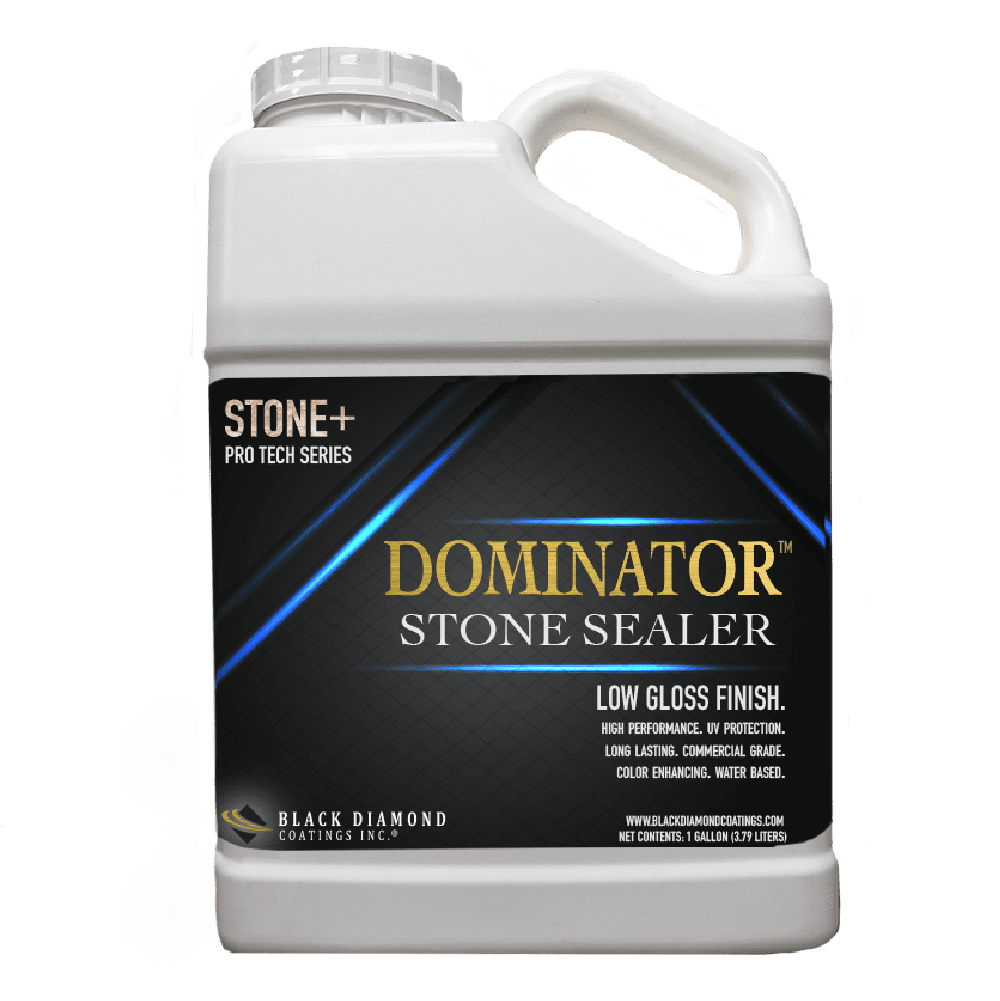
This entrance ends our top 5, but not our article, if you still have doubts and concerns about the sealing process as a whole keep reading.
Wet-look sealers for pavers: how to make the right choice
Choosing the right wet-look sealer for your pavers is essential to achieving the desired aesthetic and long-term protection. Here are some factors to consider when making your choice:
Different types of pavers may require specific types of sealers. For example, natural stone pavers may need a different type of sealer compared to concrete pavers. So make sure to check the manufacturer’s recommendations for your specific type of paver.
Also, wet-look sealers provide a glossy, “wet” appearance to the pavers. However, the level of gloss can vary depending on the product. Consider whether you prefer a high-gloss or low-gloss finish for your pavers.
Look for a wet-look sealer that offers UV protection, especially if your pavers will be exposed to sunlight. UV rays can cause fading and deterioration of the pavers over time, so UV protection can help prolong their lifespan.
Some wet-look sealers require multiple coats and specific application methods, while others are easier to apply. Consider your level of experience and the amount of time you’re willing to invest in the application process.
How to apply wet-look sealers
To begin, ensure that the pavers are clean and dry before applying the sealer. Remove any dirt, debris, or stains from the surface using a pressure washer or a suitable cleaner. Allow the pavers to dry completely for at least 24-48 hours before applying the sealer.
Never skip on protective clothing, such as gloves and safety goggles, to prevent direct contact with the sealer. Use a paintbrush, roller, or sprayer to apply the sealer evenly onto the surface of the pavers.
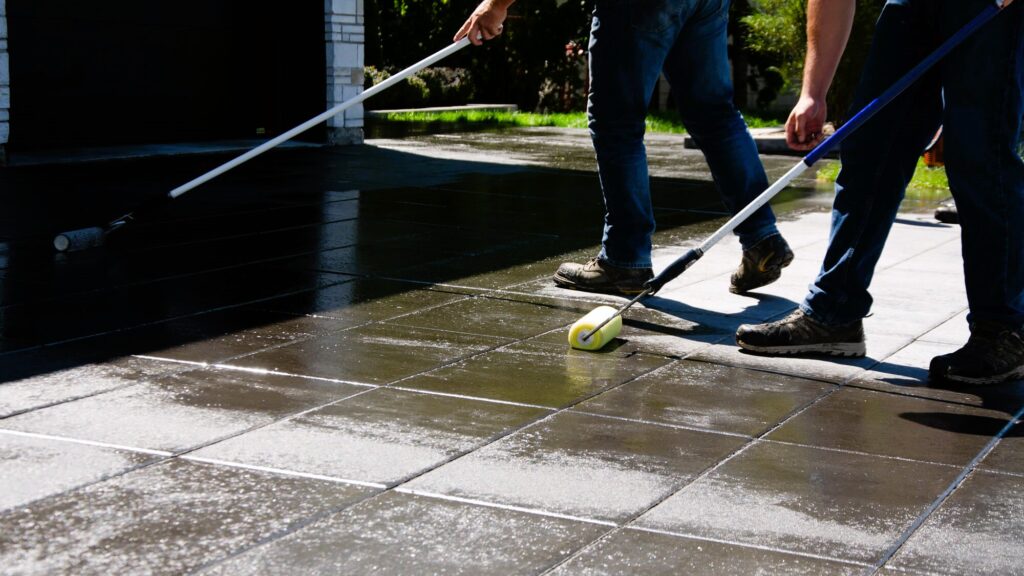
Start by applying a thin coat of sealer to the pavers, working in small sections to ensure thorough coverage. Use long, overlapping strokes to avoid streaks or uneven application, and make sure to coat the entire surface of each paver evenly, including the edges and joints.
After applying the first coat, allow the sealer to dry according to the manufacturer’s instructions. This usually takes anywhere from a few hours to a full day, depending on the type of sealer and environmental conditions.
Depending on the desired level of gloss and protection, you may need to apply additional coats of sealer. Follow the manufacturer’s instructions for the number of coats recommended for optimal results.
Clean your application tools immediately after use with the appropriate cleaning solvent as recommended by the sealer manufacturer.
Once all coats have been applied, allow the sealer to cure completely before allowing foot traffic or placing any objects on the surface of the pavers. Cure times can vary but typically range from 24 to 72 hours.
If you have further doubts, check out our complete guide on paver sealing here.
Professional application of wet-look sealers for pavers
If this application process of wet-look sealers for pavers sounds too complicated for you, your best course of action is to hire professionals to help you.
And if you are around Sarasota County, in Florida, we here at JS Brick can gladly provide that help for you.
Call us at any time to get a free quote.
FAQ
Yes, you must do. Most paver materials are porous and benefit from sealing in order to avoid stains and continue to look beautiful for years. Pavers are an investment and, as such, they need to be treated with care.
Yes, it is possible. Nevertheless, we don’t recommend it. Doing it the right way will be a tough job that requires some special tools and equipment you probably don’t have at home. Your best alternative is to hire professionals you can trust to do it for you.
Before sealing, your pavers need to be clean and free from debris. It is common to use a pressure washer for the best possible cleaning. After that, the joints between the pavers are refilled.
The sealer itself is only applied after about two days of applying the sand. Immediately prior to applying the sealer, the area is again swept clean of debris. The sealer is then spread evenly in small areas, needing maybe one or two more coats.
The complete process can take from 2 to 4 days, depending on weather conditions.
Normally every 2 or 3 years; however, there’s a simple test you can use to know if it is time. Check if water from your hose beads up on the surface or not. If it isn’t beading, that means a fresh coat of sealer will be useful.
Yes, pressure washing is an aggressive cleaning method that will also remove the sealer layer.
Your best bet would precisely be a wet-look sealer. They darken up the paver a little and have a shiny finish, which creates a wet look.
Most companies charge around $2 per sq/ft, covering in this price the cleaning, sanding, and sealing. Charges may vary according to the specific sand and sealer you end up choosing.
That can greatly vary depending on your sealer of choice. Some can cover up to 7500 sq/ft, while others only 950 sq/ft. It will greatly depend on your weather conditions and whether you’re using thinner or not, which is a decision that should always be in the hands of a qualified hardscape professional.
The wet look is what we call a gloss finish. There are many sealers, much of them presented in this article, that can offer you that look.
Only if they are applied incorrectly. In general, wet-look sealers create a film on the surface of the pavers. When applied in excess, or the sealer is not given enough time to fry between one coat and another, they in fact can become slippery.
The best way to avoid that is to ask for professional guidance before doing anything.
Technically, most wet-look sealers are designed to last up to five years. However, this would only happen in ideal conditions. In real life, weather, usage, maintenance habits, ground shifts, and many other factors, all play a role in determining how long a paver sealer will last.
If you are lucky to meet the conditions as close to perfect as possible, your paver sealer can last as long as three years. In most cases, they last up to two years.
Yes, they absolutely can. Naturally, the gloss finish will give your pavers a darker coloration, which is a normal process. Moreover, many sealers are designed to come with some slight coloration to alter the color of pavers.
That’s a complicated question. Depends on how “old” they really are. Sometimes they just look old because of bad maintenance, or even because of outdated sealers.
What determines if a paver is “too told to be used” is its structure, not its looks. Maybe it’s worth redoing your installation, taking out all the pavers, and checking for structural damage. If they are structurally sound, there’s not an immediate need to replace them aside from aesthetic reasons.
So yeah, sometimes it is very much worth sealing old pavers.
Not really. Given their popularity, you can find wet-look sealers in any hardscape store and even in most less-specialized hardware stores, for that matter.

